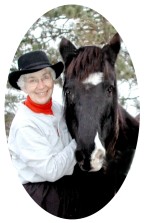How dumb do you have to be...
to be a farmer?
A recent political quote got some folks thinking about how dumb a farmer is. Although I’m not a politician, I’ve said some stupid things over the years myself. But I appreciated someone taking the time to educate me instead of just attacking my remark!
So here is some educating done by Anna Beckman, 20-year-old daughter of Jeff and Cheryl Beckman at Golden Meadows Dairy Farm south of Cannon Falls, as to what a dumb farmer - and his kids - really do out here in the country.
4 a.m.
Anna explains: “A typical day starts at 4 a.m. Why? Because we create a raw product that needs to be to the market quickly, or converted into a different product that can be stored.“So the first thing we do in the morning is walk the animals to make sure all are healthy and doing well. This consists of looking at their eyes, watching how they walk, checking to see if they are chewing cud, which means that they are doing well and eating good, among checking a few other things.”
Next... cleaning and milking
“After that, we move the cows out of their area, clean that, then bring them in to get milked. When milking, we check each cow to see what their milk looks like and test it if something does not look right.“It is important that I know and understand how to test the milk to make sure that the milk is safe for us to drink, as well as for where we ship it that it is safe to consume.”
Three hours later...
“Milking takes roughly three hours including prep beforehand and after. It is critical that our lines are sanitary so that our product is consumable, so we have been taught from a young age the importance of being careful and responsible to take care in everything we do.”
Time for a break...
“Now, if all goes well, we can take a break and go get some breakfast!“But if a cow decides it’s time to have her calf, then we are there watching her to see if we are needed to assist in the birth.”
She delivered a calf!
“By the time I was 15, I was able to deliver a calf on my own, understanding when and how best to help, when to just watch, and when to call the veterinarian for additional help.”
“Most families don’t see a nutritionist even once a year, let alone every two weeks. The point is, our cows are well cared for.”
Other aspects of farming...
“We work with a nutritionist and veterinarian every two weeks. This is to make sure our animals are healthy and taken care of. I have learned the importance of providing the right feed at the right time and how to care for the animals in the best way possible.“Most families don’t see a nutritionist even once a year, let alone every two weeks. The point is, our cows are well cared for.”
Nutrition and nurturing...
“I am learning how to balance meals for the animals to meet all their nutrition needs as well as how to take care of a sore foot when that comes up. I am responsible for the animals when my parents are not around. The first time was at the age of 17.”
“I love the cows and enjoy working with them as well as seeing the difference I can make first hand. It is hard work--mentally and physically, but it is also very rewarding.
“To know that I am responsible for the animal’s health and remembering the animals cannot tell me verbally what’s wrong... it is of huge importance that I understand and know how to accurately read the signs of a sick animal by looking at her and checking her over.
“After considering the possibilities and consulting with the veterinarian we treat them naturally when possible and make sure they are well cared for.”
And so Anna concludes her explanation of what it means to be a farmer.
Why be a farmer?
“Why do I do this? It started because it was a part of our life as a family... that we all work together. Now it has turned into a passion for me.“I love the cows and enjoy working with them as well as seeing the difference I can make first hand. It is hard work--mentally and physically, but it is also very rewarding.
“To know that I am responsible for the animal’s health and remembering the animals cannot tell me verbally what’s wrong... it is of huge importance that I understand and know how to accurately read the signs of a sick animal by looking at her and checking her over.
“After considering the possibilities and consulting with the veterinarian we treat them naturally when possible and make sure they are well cared for.”
And so Anna concludes her explanation of what it means to be a farmer.
***
Thank you Anna.
And to Mr. Politician... this farmer sure sounds smart to me!


